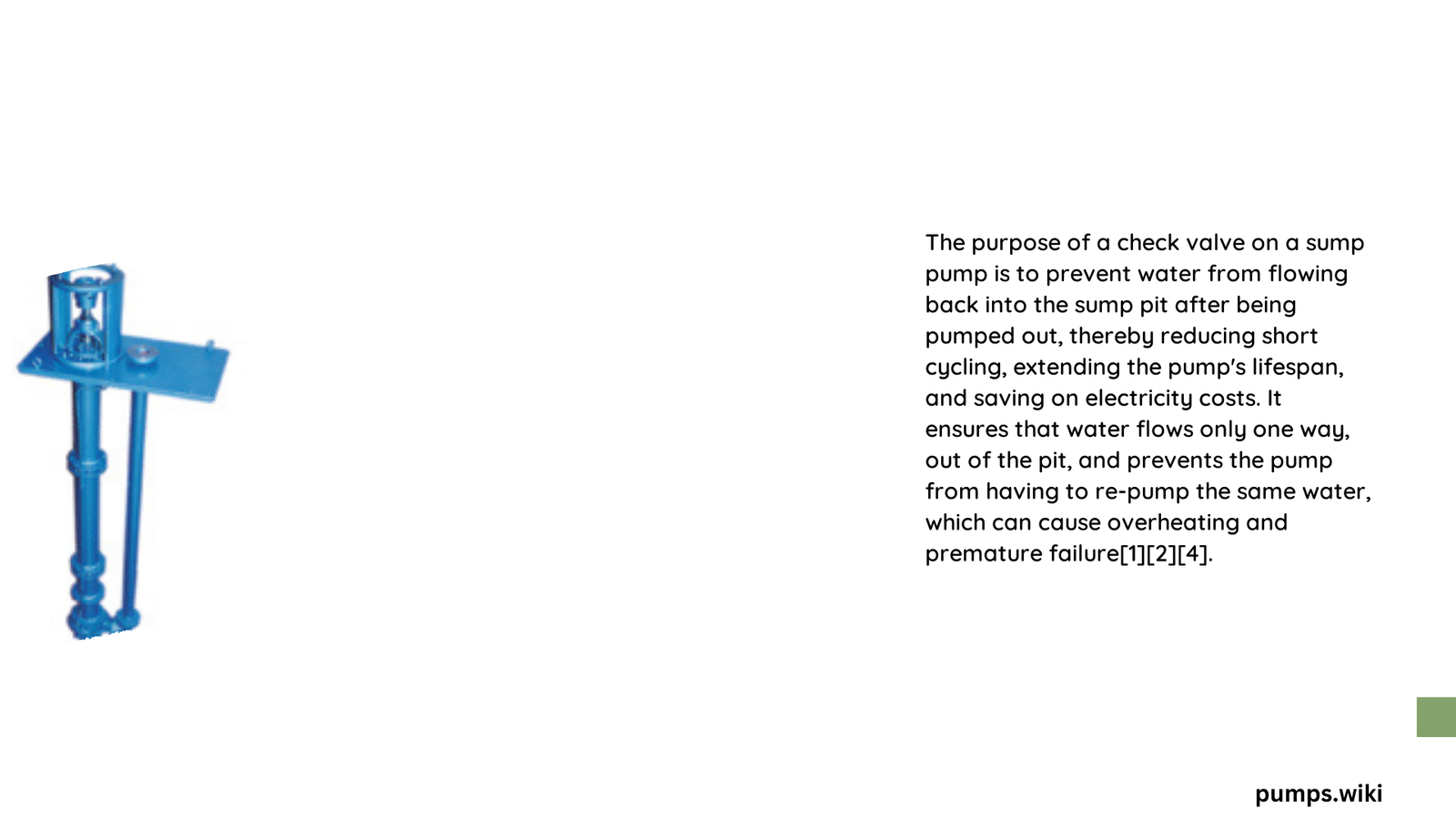A sump pump check valve serves as a critical defense mechanism in basement water management systems, preventing water from flowing back into the sump pit after pumping. This one-way valve ensures efficient water removal, reduces pump strain, and protects against potential flooding by creating a reliable barrier that stops water from re-entering the drainage system, ultimately extending the lifespan of your sump pump and maintaining a dry, protected basement environment.
What Makes Check Valve Critical for Sump Pump Performance?
Check valves are fundamental components in sump pump systems that prevent water from returning to the sump pit after being pumped out. Their primary function goes beyond simple water management, offering multiple protective benefits for homeowners.
Why Does Backflow Prevention Matter?
Water backflow can create significant challenges in sump pump operations:
- Pump Efficiency Reduction: Repeated pumping of the same water increases energy consumption
- Mechanical Stress: Continuous cycling causes unnecessary wear on pump components
- Potential System Failure: Constant backflow can lead to premature pump breakdown
How Do Check Valves Operate?
Check valves function through a simple yet ingenious mechanism:
| Valve Type | Closure Mechanism | Noise Level | Recommended Use |
|---|---|---|---|
| Gravity Closing | Gravitational Force | Moderate | Standard Applications |
| Spring Assisted | Mechanical Spring | Low | Noise-Sensitive Environments |
| ABS Valve | One-Piece Flapper | Minimal | High-Performance Systems |
What Are the Key Benefits of Check Valve Installation?
- Energy Conservation
- Reduces unnecessary pump cycling
- Lowers electricity consumption
-
Minimizes operational strain
-
Equipment Protection
- Prevents premature pump wear
- Extends overall system lifespan
- Reduces maintenance requirements
Where Should Check Valves Be Positioned?
Optimal check valve placement is crucial for maximum effectiveness:
- Install 8-12 inches above floor level
- Position approximately 6 inches above pump discharge
- Ensure easy accessibility for inspection and maintenance
What Factors Influence Check Valve Performance?
Several critical elements impact check valve functionality:
- Material Quality: Durable construction prevents leakage
- Proper Sizing: Matching valve dimensions to pump specifications
- Regular Maintenance: Periodic inspection prevents potential failures
How Much Do Check Valves Cost?
Check valve pricing varies based on type and quality:
- Basic Gravity Closing: $10 – $30
- Spring Assisted Models: $20 – $50
- Advanced ABS Valves: $25 – $60
What Maintenance Practices Enhance Check Valve Longevity?
Recommended maintenance strategies include:
- Annual visual inspections
- Cleaning valve components
- Checking for potential leaks or wear
- Replacing worn parts promptly
Conclusion

Understanding the purpose of check valve on sump pump systems is essential for homeowners seeking reliable basement water management. By preventing backflow, reducing mechanical stress, and enhancing overall system efficiency, check valves represent a small but critical investment in home protection.
